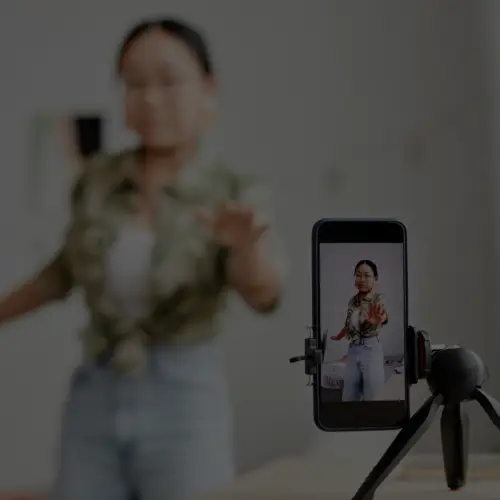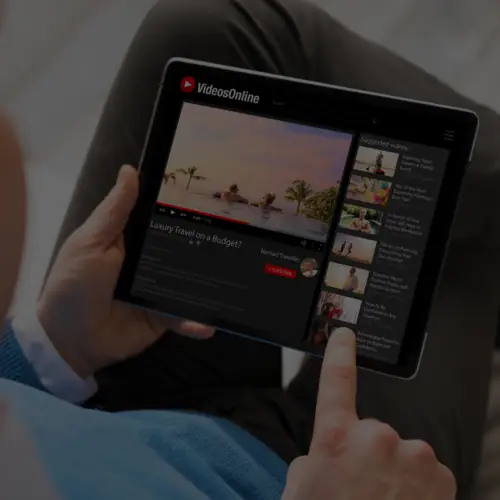11 Feb Can Crowdsourcing Lower Health Care Costs?
Recently, I was browsing Reddit and one of the top posts featured a video about how much higher health care costs are in the United States compared to other countries. A Reddit user commented that to combat high costs, someone should build a website that uses crowdsourcing for hospital expenses so users “could determine generally what prices are like in a particular hospital and likely shame the worst offenders into lowering their prices.”
Another user commented that one of their friends was doing just that. It’s a site called Doctible and although the site isn’t available yet, I was able to conduct the following interview with co-founder Ajit Viswanathan.

What is your background?
I am a product manager in the health care industry and been involved in the tech industry for more than 12 years. I have been involved in three key industries: web, mobile and health care and this gives me the footing to tackle a very prevalent problem through use of technology: health care costs. I am also a graduate of UCLA with an MBA.
What inspired you to create the site?
Medical inflation is out of control and with the rise in high-deductible insurance plans, consumers are now responsible for a bigger chunk of their health care costs due to the out of pocket expenses. The big insurance payers can leverage their networks to control reimbursement costs to providers. However, there is no platform that has combined the ability for a user to understand their costs and negotiate with the provider. We strongly believe that health care can be made affordable when consumers take control of their costs and that’s why we made Doctible. It is to educate and empower consumers. In that spirit, consumers do not need to sign up to get the fair prices. That will be a free service (and an iPhone app) for everyone to use. The consumers only need to sign up if they want to negotiate with the providers through our platform.
On a personal front, my brother had a $2000 bill for a quick visit to the ER doctor. Given my background in the industry, I told him that this bill was negotiable (which he did not realize was possible) and called the doctor to negotiate for him and was able to get a 30% discount. That gave me the realization that people do not have a sense of what the costs are and that medical bills are negotiable. I wanted to build a platform and provide a service similar to what I did for my brother.
How exactly will it work once it’s up and running?
Doctible will be a platform that provides transparency on health care costs by giving consumers a tool to see fair prices for medical treatment. In addition, Doctible will enable consumers to use these fair prices as benchmarks to negotiate with the medical providers through our platform. We are removing the discomfort of negotiating over the phone and allow users to submit their offer through our platform and connect with the providers. The closest analogy is that we are the “Priceline of health care.”
What other networks have you modeled it after?
We describe ourselves as a Yelp meets Priceline for health care. Those two networks accomplish something we want to do: provide consumers with information and then enable them to make a purchase decision that they are comfortable with.
What social networking aspect (if any) is the site going to have?
Consumers can share on their social networks whether they were able to save on their medical bills using Doctible. Users will be able to provide reviews on doctors in later releases which can then be shared on their social networks.
What challenges have you found in building the site?
How do you create an experience to get consumers to be comfortable to disclose their medical bills without dealing with a human? Creation of every page that provides that comfort level and ensuring that it is clean and simple has been our biggest debate internally. We strongly feel that user experience is paramount.
What successes have you found so far in comparing different health care costs?
We have used our approach for friends and family and have managed to reduce the medical bill costs in each instance. We are slated to launch our Beta in April. Until then, we are providing a service to interested consumers to negotiate their medical bills without any charges.
What demographic are you targeting?
We are targeting tech savvy consumers with medical bills who are comfortable using technology to take care of their health care costs. Primary segment is 18-44 year olds.
How do you hope people will use it?
Two ways: One for the broader audience to visit Doctible to use our free service to understand fair prices. Second, to use our platform to negotiate their medical bills with providers.
How do you envision brands getting involved? Is this a platform where brands can get involved?
We do not envision brands getting involved. We want this to be a consumer focused site without any ads.
What kind of monetization strategy do you have?
We charge consumers a percentage of their savings. We only make money if we save money for consumers when they negotiate with providers through our platform. It’s all free if no savings were realized.
How do you plan to sustain the network over time?
By providing more value to consumers. We want to partner with the medical provider community so that as a whole they realize that this ecosystem is more efficient when consumers are charged a fair price and can pay with confidence that they are not overcharged for the services.
How do you plan to deal with both social media and medical privacy concerns?
We are following HIPAA guidelines with medical data. All data will be encrypted and the right controls will be in place on who has access to data. Only publicly available information will be shared in social media. We take privacy very seriously and we understand how important it is to protect this information.
Crowdsourcing as a Tool for Good
One of the great developments of the social media age is that these new social networks give power to the consumer. In the past few years, various networks have allowed consumers to contact brands directly and make more informed purchasing decisions. Bringing these concepts to the health care industry is a fantastic idea and I for one hope Doctible succeeds.






